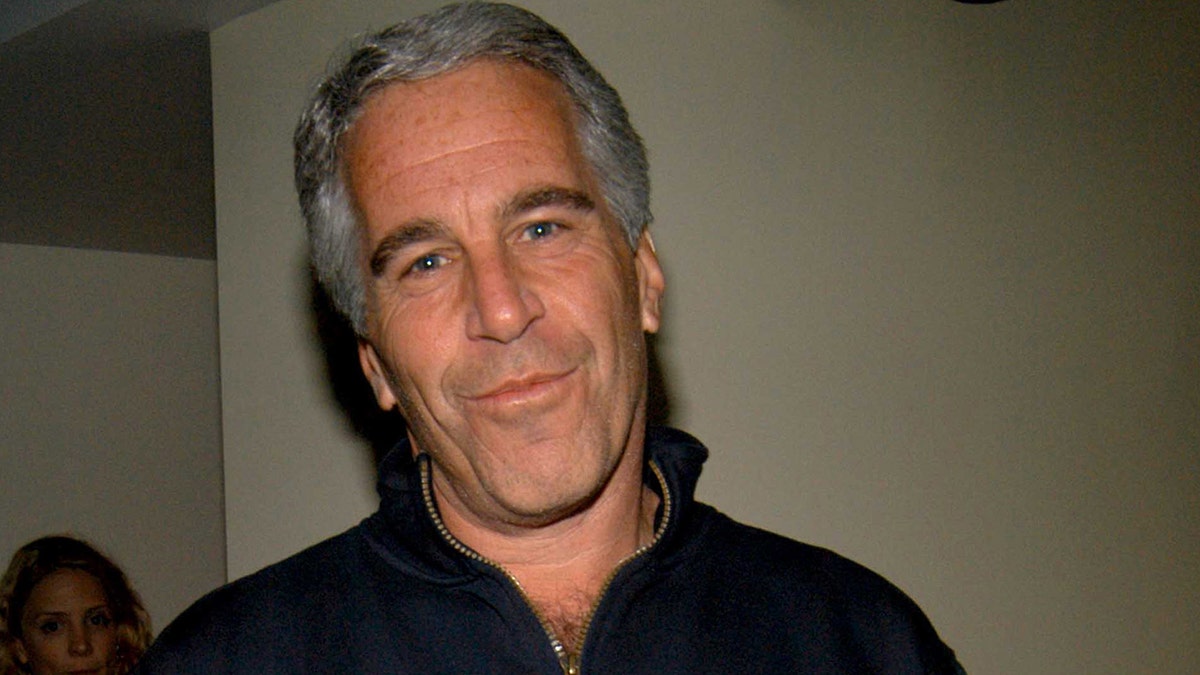Understanding The Complex Intersections Of Congress, Democrats, Facebook, And Key Issues
In the ever-changing political and technological landscape, discussions around Congress, Democrats, Facebook, and related issues such as the FBI, Ebola, and the Epstein case have become increasingly relevant. These topics are not only essential for understanding current affairs but also play a critical role in shaping the future of governance, public health, and technology. This article provides an in-depth analysis of these intersections, offering a clearer perspective on their significance.
As we delve into these subjects, it's crucial to appreciate how interconnected these entities are. Whether it's Congress crafting policies, Democrats influencing legislative agendas, or Facebook shaping public discourse, each plays a vital role in the modern world. Understanding these dynamics helps individuals stay informed about the latest developments and their broader implications.
This article aims to provide a detailed exploration of these topics, ensuring readers gain a comprehensive understanding of the issues at hand. By examining the roles of Congress, Democrats, Facebook, and other related entities, we aim to highlight both the challenges and opportunities they present in today's complex environment.
Read also:Exploring Wwwmovierulzcom Kannada A Comprehensive Guide
Table of Contents
- The Crucial Role of Congress in Modern Governance
- Democrats' Influence on Policy and Legislation
- Facebook's Role in Shaping Society and Politics
- The FBI: Safeguarding National Security
- Ebola: Lessons Learned and Future Preparedness
- The Epstein Case: Unpacking the Controversy
- Regulating Technology: Balancing Innovation and Privacy
- Political Challenges in the Digital Age
- Shaping Public Opinion: The Role of Media
- Future Directions and Opportunities
The Crucial Role of Congress in Modern Governance
Congress, as the legislative branch of the U.S. government, holds the responsibility of enacting laws and overseeing federal agencies. Its role in modern governance is indispensable, shaping policies that impact millions of lives. From allocating budgets to establishing regulatory frameworks, Congress plays a central role in addressing both national and global challenges.
Key Responsibilities of Congress
- Crafting legislation to address economic, social, and environmental issues.
- Ensuring accountability and transparency by overseeing the executive branch.
- Approving federal budgets and managing fiscal policies.
In recent years, Congress has tackled complex issues such as healthcare reform, climate change, and cybersecurity. By engaging with stakeholders and experts, Congress strives to develop policies that reflect the needs and aspirations of the American people, fostering a more equitable society.
Democrats' Influence on Policy and Legislation
The Democratic Party has been a significant force in shaping policy and legislation in the United States. With a commitment to progressive values, Democrats prioritize issues like healthcare, education, and environmental protection. Their influence extends beyond domestic policies, impacting international relations and global cooperation.
Key Priorities of Democrats
- Ensuring access to affordable healthcare for all citizens.
- Investing in education and workforce development programs.
- Addressing climate change through sustainable energy initiatives.
Democrats have played a pivotal role in advancing policies that promote social justice and economic equality. By collaborating with various stakeholders, they aim to create a more inclusive and equitable society, fostering opportunities for all.
Facebook's Role in Shaping Society and Politics
Facebook has emerged as one of the most influential platforms in the digital age, reshaping how people communicate and consume information. With billions of users globally, Facebook's impact on society and politics is profound. From facilitating social interactions to influencing electoral outcomes, Facebook plays a significant role in the modern world.
Challenges Faced by Facebook
- Addressing concerns over data privacy and security.
- Managing misinformation and fake news on the platform.
- Ensuring transparency in political advertising.
As Facebook continues to evolve, it faces increasing scrutiny from regulators and the public. By implementing robust policies and technologies, Facebook aims to address these challenges while maintaining its position as a leading social media platform, contributing positively to society.
Read also:Understanding The Risks And Alternatives To Hdhub4u For Bollywood Movies
The FBI: Safeguarding National Security
The Federal Bureau of Investigation (FBI) serves as the primary law enforcement agency in the United States, dedicated to safeguarding national security. With a focus on combating terrorism, cybercrime, and other threats, the FBI plays a critical role in protecting the nation and its citizens.
Key Functions of the FBI
- Investigating and prosecuting criminal activities.
- Protecting the United States from foreign intelligence threats.
- Providing support and resources to local law enforcement agencies.
Through its extensive network of agents and advanced technologies, the FBI continues to adapt to emerging threats, ensuring the safety and security of the American people. Its commitment to upholding justice and protecting the nation remains unwavering.
Ebola: Lessons Learned and Future Preparedness
The Ebola outbreak of 2014-2016 underscored the importance of global health preparedness and response. As the world confronted the crisis, valuable lessons were learned about the necessity of coordinated efforts and robust healthcare systems. These lessons continue to inform strategies for addressing future health challenges.
Key Takeaways from the Ebola Outbreak
- The importance of early detection and rapid response in mitigating outbreaks.
- The need for international cooperation and resource sharing to combat global health crises.
- The role of public health education in preventing the spread of disease.
By learning from past experiences, governments and organizations can better prepare for future health emergencies, ensuring the well-being of communities worldwide and fostering a more resilient global health infrastructure.
The Epstein Case: Unpacking the Controversy
The case of Jeffrey Epstein has garnered global attention, raising critical questions about justice, accountability, and systemic failures. As investigations continue, the case serves as a reminder of the importance of transparency and integrity in legal proceedings.
Key Aspects of the Epstein Case
- Allegations of sexual abuse and exploitation, highlighting the need for robust legal frameworks.
- Questions surrounding Epstein's connections and influence, underscoring the importance of impartial investigations.
- Ongoing efforts to seek justice for victims and their families, emphasizing the necessity of a fair judicial process.
By examining the Epstein case, we gain insights into the challenges faced by the justice system and the need for reforms to ensure fairness and equity for all, fostering a more just society.
Regulating Technology: Balancing Innovation and Privacy
As technology continues to advance at an unprecedented pace, the need for effective regulation becomes increasingly evident. Striking a balance between fostering innovation and protecting privacy is a complex challenge that requires collaboration between governments, industries, and stakeholders.
Key Considerations in Technology Regulation
- Ensuring data privacy and security for users while promoting technological advancements.
- Encouraging innovation while maintaining ethical standards to prevent misuse.
- Addressing the societal impact of emerging technologies, ensuring they contribute positively to human welfare.
By developing comprehensive regulatory frameworks, governments can promote a safe and equitable digital environment, benefiting individuals and organizations alike while fostering trust in the digital age.
Political Challenges in the Digital Age
The digital age has transformed the political landscape, presenting both opportunities and challenges. From the rise of social media to the proliferation of misinformation, political actors must navigate a complex environment to engage effectively with constituents and uphold democratic principles.
Addressing Political Challenges
- Promoting digital literacy and critical thinking skills to empower citizens in the digital age.
- Encouraging transparency in political communications to build trust and credibility.
- Fostering dialogue and collaboration across political divides to address shared challenges.
By embracing these strategies, political leaders can enhance public engagement, build trust, and ensure that democracy thrives in the digital age, fostering a more informed and engaged citizenry.
Shaping Public Opinion: The Role of Media
Media plays a pivotal role in shaping public opinion, influencing how people perceive and understand current events. From traditional news outlets to social media platforms, the media landscape continues to evolve, presenting new opportunities and challenges for both journalists and audiences.
Key Factors in Shaping Public Opinion
- The influence of social media on news consumption and public discourse.
- The importance of fact-checking and credible journalism in maintaining public trust.
- The impact of media bias on public discourse and the need for balanced reporting.
By promoting responsible journalism and media literacy, we can empower individuals to make informed decisions and engage meaningfully with the world around them, fostering a more informed and engaged society.
Future Directions and Opportunities
Looking ahead, the intersection of Congress, Democrats, Facebook, and related topics presents numerous opportunities for growth and innovation. By addressing current challenges and embracing new technologies, we can create a brighter future for all.
Key Opportunities for the Future
- Advancing policies that promote social justice, equality, and inclusivity in society.
- Investing in technologies that enhance public safety, security, and quality of life.
- Fostering collaboration between governments, industries, and communities to address shared challenges.
Through collective effort and determination, we can overcome the challenges of today and build a more inclusive and prosperous tomorrow, ensuring a legacy of progress and innovation.
Kesimpulan
In conclusion, the complex intersections of Congress, Democrats, Facebook, and related topics highlight the importance of informed dialogue and collaboration. By understanding the roles and responsibilities of these entities, we can work together to address the challenges and opportunities they present, fostering a more equitable and prosperous society.
We invite you to join the conversation by leaving a comment or sharing this article with others. Together, we can contribute to a more informed and engaged society. For more insights and analysis, explore our other articles and resources, continuing the dialogue on these critical issues.
Article Recommendations


